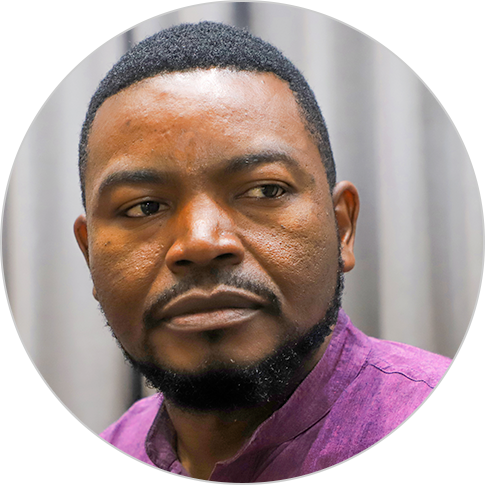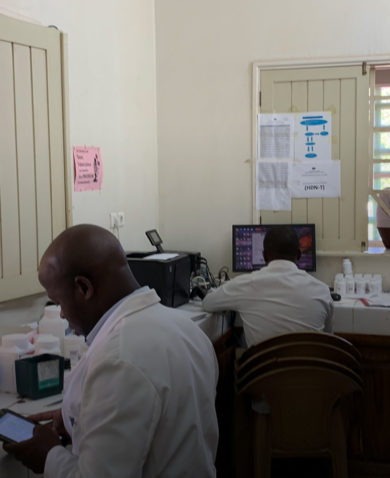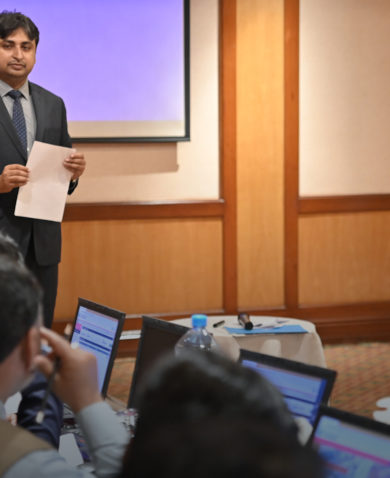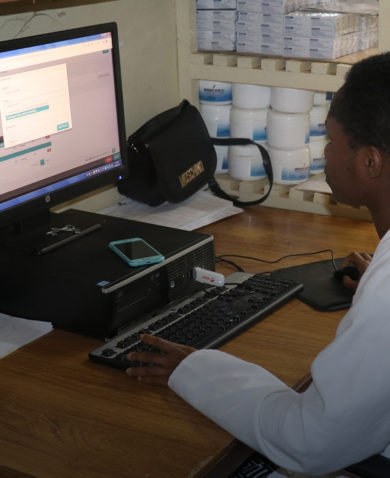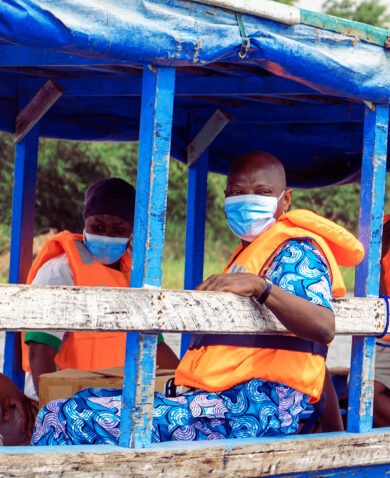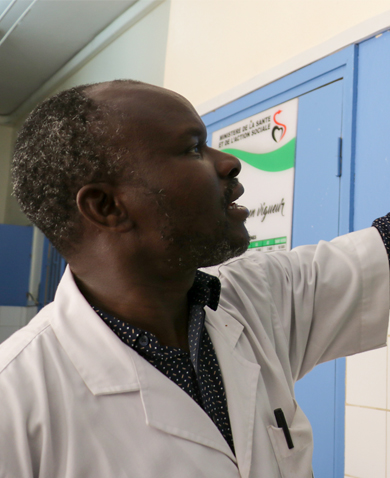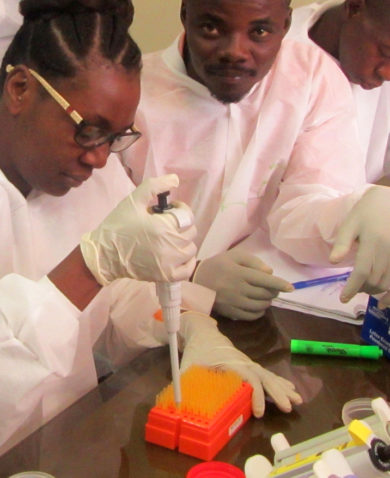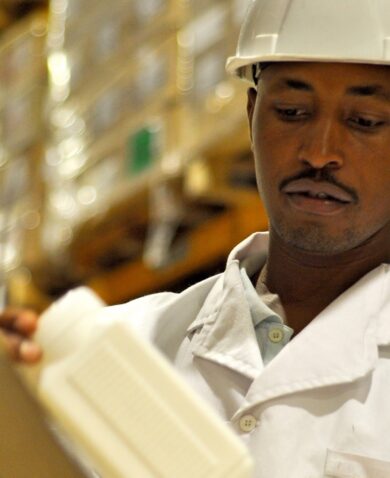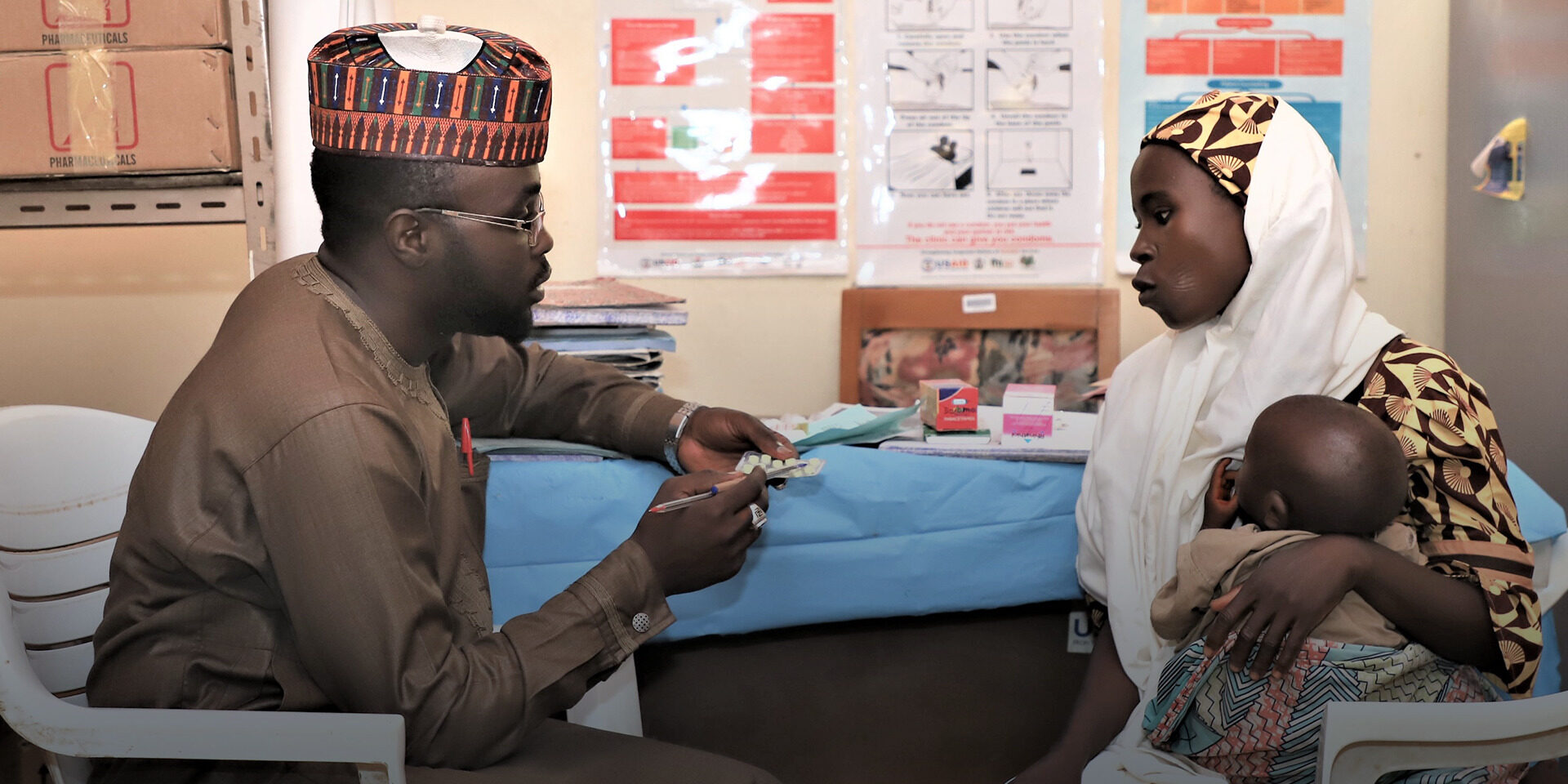
3 Questions with Jiru Bako on Strengthening the Nigerian Health System
February 9, 2023 | 3 Minute ReadChemonics’ deputy director for GHSC-PSM in Nigeria talks about his background and work to build a stronger, more resilient health system by enhancing the country’s health supply chain.

1. What drew you to work in health supply chains?
My background is in pharmacy. As a pharmacist, I had experiences in hospitals that brought me in contact with patients. I also noticed the effects of a broken supply chain system on their health and needs. I have always liked to assist people and make their lives a little better, and with my background I thought there was no better way than working to enhance the health supply chain. I am passionate about working on projects that aim to strengthen health supply chains. Before joining Chemonics as the Deputy Director for the USAID Global Health Supply Chain Program-Procurement and Supply Management (GHSC-PSM) project in Nigeria, I worked as the Nigeria Country Director for Crown Agents. In both positions my priority is to ensure the commodities get to the clients that need them. It gives me a spring in my step to know that there’s someone out there in some remote village that would live a better life because of the commodities we distribute.
2. Which health system challenges are currently being addressed through GHSC-PSM’s work in Nigeria?
There are different conflicts ongoing in Nigeria, affecting the country’s politics and life in the communities. For example, there are persistent stay-at-home orders in the Eastern parts of the country that can last days to keep people safe from a faction of a separatist organization. These orders affect our vendors, who can’t transport health commodities, as well as health and supply chain workers, who can’t go to work on those days. Despite the insecurity, we still need to ensure that commodities get everywhere, especially hard-to-reach areas.
Another challenge is the sustainability of the system. We work directly with the government, who should fund in-country supply chain operations. However, at this stage, the Nigerian supply chain is hugely funded by donors. Things like basic payments can get delayed because everything has to go through a budget system that is convoluted. With GHSC-PSM, we’re working with the government to optimize these processes and to get them to a point where the government is ready to take ownership and responsibility of supply chain operations. This transition to the government, where the country leads and funds all operations, will make the system more sustainable and more resilient.
3. Can you share an example of a successful activity implemented through GHSC-PSM that contributes to a stronger, more resilient health system? What made it such a success?
The implementation of the National Health Logistics Management Information System (NHLMIS) is a good example of GHSC-PSM’s support. It’s where the supply chain data is drawn from. The entire supply chain was managed using a manual, paper-based system before we implemented the NHLMIS. This system gives us end-to-end visibility and allows us to clearly follow our clients and their utilization of their medications to inform our restocking needs. NHLMIS is a comprehensive system that we use to collect real-time data from all levels of the supply chain straight from the facilities. It also includes a catalog of all the different products transported and delivered across Nigeria. This system is currently running all over the country with programs outside of our original network of partners also inputting data, which increases visibility and aids in planning. It is the entire backbone of our operations as that is where we get the data that informs restocking, giving us the ability to restock on time every cycle.
This implementation was a success thanks to the sheer grit and the desire to succeed on the part of our staff, who persistently dedicate the effort and time needed to ensure that those commodities get to where they are most needed. This includes their resiliency and ability to adapt to challenges.
Posts on the blog represent the views of the authors and do not necessarily represent the views of Chemonics.
Photo caption: Like in other general hospitals in Kano, Nigeria, thanks to the support of GHSC-PSM, free anti-malaria drugs are available at Gwarzo General Hospital. Credit: GHSC-PSM

